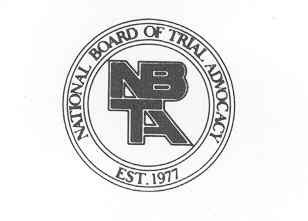Every Friday we will take a look at some of the most commonly asked questions about Pennsylvania DUI so that we can clear up any misconceptions and provide you with the most up-to-date and accurate information. Today:
I was recently arrested for a DUI right outside of Harrisburg. How come I see two DUI charges?
The two separate charges you are referring to are the "common law" DUI charge and the "per se" DUI charge. These are two separate charges that carry different burdens of proof.
Common Law DUI Charge
Under the first charge, you are being charged for being INCAPABLE OF SAFE DRIVING i.e. drunk driving. The phrase “incapable of safe driving” has a very precise and exact legal definition that the Government must prove beyond a reasonable doubt in order to convict someone of a Pennsylvania DUI. “Incapable of safe driving” means that the accused is SUBSTANTIALLY IMPAIRED DUE TO ALCOHOL OR DRUGS OR A COMBINATION OF BOTH and that his/her normal faculties THAT ARE ESSENTIAL TO THE SAFE OPERATION OF A VEHICLE are substantially impaired due to alcohol, drugs or a combination of both.
In addition to proving identity and that the motorist was operating on the roadways or the highways of the Commonwealth with this brand of DUI, the Government basically needs to prove three things:
- The accused was substantially impaired
- The accused was unable to perform acts that are essential to the safe operation of a vehicle
- This impairment was due to alcohol, drugs or a combination of both
The prosecutor must prove all three points for you to be convicted of a Common Law DUI in PA.
Per Se DUI Charge

The second charge has to do with the magic Blood Alcohol Content (BAC) number. In fact, this charge has nothing to do with a driver’s ability to drive at all. The only criteria being looked at here is the BAC level which in the Commonwealth of PA is .08. To simplify it, it should be called something like “Having a Prohibited BAC while Driving” or something like that instead of Driving Under the Influence. What makes it unique is that you can pass all of the roadside tests (the Standardized Field Sobriety Tests) and be completely coherent and be totally unimpaired, but simply by having a BAC above a .08 in Pennsylvania, it is enough to be charged and possibly convicted provided that the Government can prove that the reported BAC is accurate, precise, traceable, repeatable, verified and true.
So in summary, in one type of Pennsylvania DUI the Government must prove that you are literally incapable of safely driving because you had too much to drink and the other type the Government has to prove that a person’s BAC is above a magic number regardless of how well you can drive.
If you would like to ask a question, please submit it via the contact us link.
-Justin J. McShane, Esquire, Pennsylvania DUI Attorney
I am the highest rated DUI Attorney in PA as Rated by Avvo.com
You can follow me on Twitter, Facebook or Linkedin

Board Certified Criminal Trial Advocate
By the National Board of Trial Advocacy
A Pennsylvania Supreme Court Approved Agency